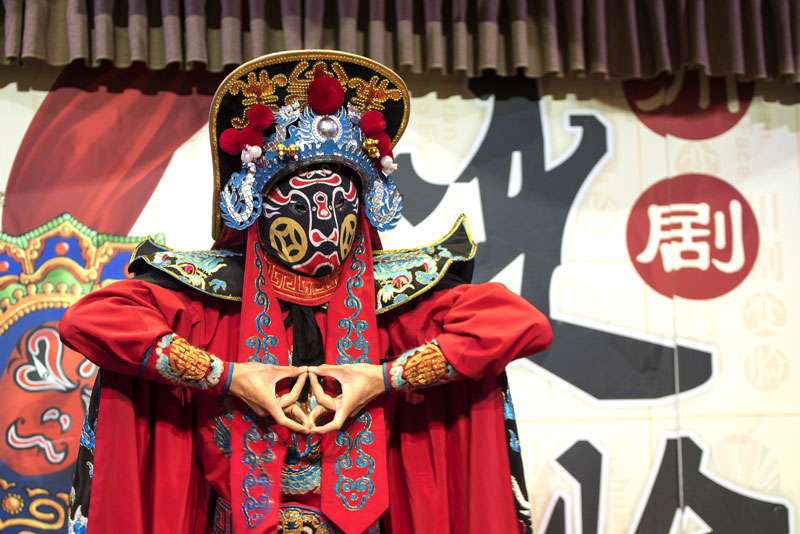Language is more than just a means of communication. It is also an essential component of culture, reflecting and shaping the beliefs, values, and history of a community. For speakers of Chinese, the language they use every day is a reflection of their rich and complex cultural heritage. In this article, we will explore the cultural significance of Chinese language and how it extends beyond just grammar and vocabulary.
A Brief History of the Chinese Language
Chinese is one of the oldest and most widely spoken languages in the world. It has a long and complex history that spans over 3,000 years, from the earliest forms of Old Chinese to the Modern Chinese spoken today.
Old Chinese was the earliest form of the language, dating back to the Shang Dynasty (1600-1046 BCE). This language had a small number of syllables and was primarily monosyllabic. Over time, Old Chinese evolved into Middle Chinese, which was the language spoken during the Tang Dynasty (618-907 CE). During this time, Middle Chinese was used as the written language for literature and government documents.


Modern Chinese, also known as Putonghua (so-called Mandarin in Taiwan), evolved from Middle Chinese and was standardized during the 20th century.
In the 20th century, significant reforms were made to the Chinese language to simplify it and make it easier to learn. Simplified Chinese characters were introduced in mainland China in the 1950s, while traditional characters are still used in Hong Kong, Taiwan, and other regions.
Today, Chinese is spoken by over 1 billion people worldwide and is one of the six official languages of the United Nations. It is the most widely spoken language in the world and is used in a wide range of fields, including business, science, and technology.


The Importance of Chinese Language in Culture
Chinese language is an integral part of Chinese culture, with a rich history and deep cultural significance. For many Chinese people, the language is closely tied to their sense of identity and belonging.
Chinese literature and history are filled with examples of the importance of language. From the ancient poetry of the Book of Songs to the classic works of Confucian philosophy, Chinese literature has been shaped by the language in which it is written. Similarly, Chinese history is filled with examples of the power of language, from the written records of the earliest dynasties to the speeches of modern-day politicians.


Chinese language is also significant in Chinese philosophy and religion. The language is used to express the concepts and principles of Confucianism, Taoism, and Buddhism, all of which have had a profound influence on Chinese culture and society.


In addition to its literary and philosophical significance, Chinese language also reflects and shapes cultural values and beliefs. The language is characterized by indirectness and politeness, reflecting the importance of harmony and respect in Chinese culture. This is evident in the use of honorifics and other forms of polite language, as well as in the subtle nuances of tone and inflection.
Chinese Language and Communication
The cultural significance of Chinese language is also evident in the way that people communicate with each other. Chinese language communication is often influenced by cultural context, with different forms of language used in different situations.
For example, in formal settings such as business meetings or official ceremonies, a more polite and indirect form of language is typically used. This is characterized by the use of honorifics, formal expressions, and indirect language. In contrast, informal settings such as conversations with friends or family members may involve a more casual and direct form of language.


Another key aspect of Chinese language communication is the use of tone and inflection. Chinese is a tonal language, meaning that the meaning of a word can change depending on the tone in which it is spoken. This can be a source of confusion for non-native speakers, but it is also a unique aspect of the language that adds to its beauty and expressiveness.
Learning Chinese: Cultural Insights and Best Practices
Learning Chinese is a rewarding but challenging experience that requires more than just grammar and vocabulary. To truly understand and appreciate Chinese culture, it is important to have a deeper understanding of the cultural context in which the language is used.
One way to gain this insight is through immersion inChinese culture. This could involve living in a Chinese-speaking country or spending time with native speakers of Chinese. Immersion allows learners to gain a better understanding of the nuances of the language and the cultural values and beliefs that shape it.


In addition to immersion, there are several other best practices for learning Chinese beyond grammar and vocabulary. One of these is to focus on listening and speaking skills, as these are essential for effective communication in Chinese. It is also important to pay attention to tone and inflection, as these can significantly impact the meaning of words and phrases.
Another best practice is to study Chinese characters, as they are an important part of written Chinese. Chinese characters are complex and often require a significant amount of time and practice to master, but they are also an integral part of Chinese culture and history.
Finally, it is important to approach Chinese language learning with an open mind and a willingness to embrace cultural differences. Chinese culture has its own unique values and beliefs, and learners who are able to appreciate and respect these differences will be better equipped to communicate effectively in Chinese.
Conclusion
Chinese language is more than just a means of communication. It is a reflection of the rich and complex cultural heritage of the Chinese people. From the earliest forms of Old Chinese to the Modern Chinese spoken today, the language has played a vital role in Chinese literature, history, philosophy, and religion.
Understanding the cultural significance of Chinese language is essential for anyone who wishes to truly understand and appreciate Chinese culture. By focusing on cultural insights and best practices for learning Chinese beyond grammar and vocabulary, learners can gain a deeper understanding of the language and the cultural values and beliefs that shape it.


References for Learning Chinese
We may get paid by brands or deals, including promoted items.







